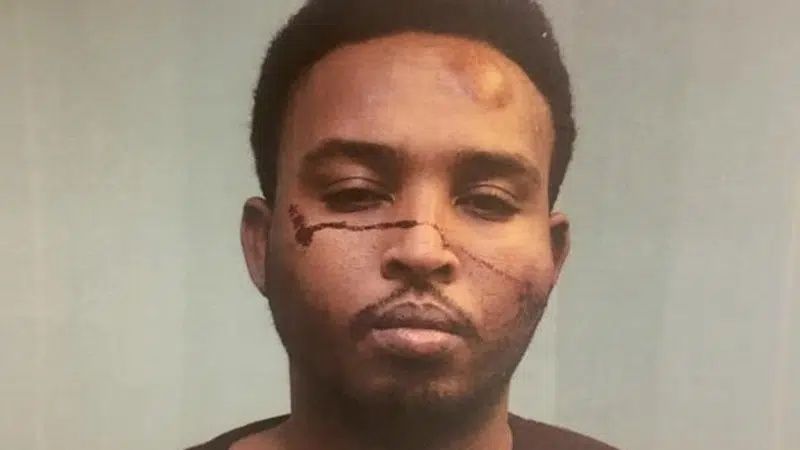
Jury deliberating at trial for suspect in Edmonton police officer stabbing
EDMONTON — Jurors are deliberating in the trial for a man accused of stabbing a police officer and striking four pedestrians with a van.
Abdulahi Hasan Sharif, 32, has pleaded not guilty to 11 charges, including five counts of attempted murder, in the Sept. 30, 2017, attack.
“You are the sole judges of the facts,” Justice Paul Belzil told the five-woman, seven-man jury before it started deliberating Thursday morning.
During the trial, Const. Mike Chernyk testified that he was on traffic duty outside an Edmonton Eskimos football game when he was struck by a car. He next remembered a man on top of him, stabbing him in the head with a knife.

